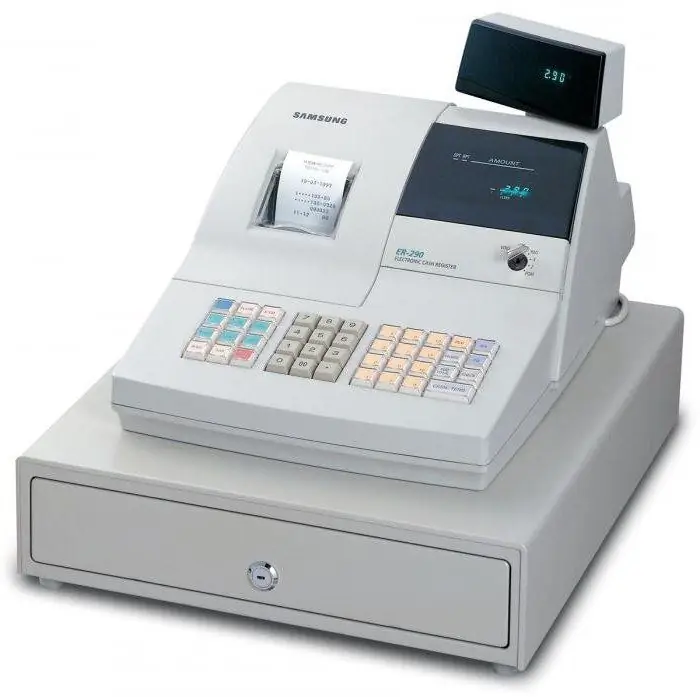2026 Author: Howard Calhoun | calhoun@techconfronts.com. Last modified: 2025-01-24 13:10:45
In accordance with the legislation of the Russian Federation, the competent state authorities maintain a Unified Register, which includes information about small and medium-sized Russian enterprises, as well as individual entrepreneurs, which, based on economic performance indicators, can be attributed to this category of businesses. What criteria must a firm meet to be included in the relevant register? How is information about business entities entered into it?

What is the register of SMEs?
First of all, let's define what the registry in question is. This source is a state database that reflects information about enterprises that, based on the criteria established by law, can be classified as small or medium-sized businesses.
Thus, one or another interested person can, by making a request to the register of small and medium-sized businesses, make sure that, for example, his partnerhas the status of an NSR, which is confirmed by an official entry in the relevant state database. As a rule, these stakeholders are other government agencies, municipal authorities, large suppliers who are considering the possibility of cooperation with SMEs in one direction or another.
Using the resource in question is quite simple. It is integrated with the interfaces of the website of the Federal Tax Service. By going to it, you can check whether this or that organization belongs to the corresponding category.
It is worth noting that the resource in question is federal. That is, for example, a separate register of small and medium-sized businesses in Moscow, St. Petersburg or another Russian city is not provided. But, one way or another, all capital enterprises, as well as those registered in other regions - from among those that meet the criteria for classifying as SMEs - are entered in this register.
But how does information about these firms get into the appropriate databases?
How is the SME registry created?
The unified register of small and medium-sized businesses is formed directly by specialists of the Federal Tax Service. That is, the participation of representatives of firms in this process is not required. The Federal Tax Service classifies businesses as belonging to the SME category based on the information that is in government information systems.

This assumes that any requests fromThe Federal Tax Service will not address enterprises with clarification of their status or with a request to provide any information that allows classifying a company as an SME.
Documents on the basis of which firms will be classified, information about which must be entered in the register of small and medium-sized businesses, can be:
- tax returns;
- sources formed in the order of information communications of the Federal Tax Service with certain subjects of legal relations.
In addition, to form the registry in question, records reflected in the Unified State Register of Legal Entities and EGRIP - databases that are also administered by the Federal Tax Service can be used. If the Federal Tax Service does not have documents at its disposal, on the basis of which information about the company can be entered into the register of small and medium-sized businesses of the Russian Federation, then the tax authorities will not make the corresponding entries in the database in question.
Criteria for classifying a company as an SMP: ownership of shares in the authorized capital
Based on what criteria can a business entity be classified as an SME?

If it is a legal entity, then the total share of state or municipal structures, public associations, religious organizations, backgrounds, in the authorized capital of the enterprise should not exceed 25%, and foreign firms not classified as SMEs - 49 %.
Criteria for classifying a firm as an SME: innovation activity
In addition, a legal entity can be classified as an SME if:
- its shares - if the legal entity is a JSC - will be classified as securities of the high-tech segment of the economy in the manner prescribed by law;
- the activity of a legal entity is connected with the introduction of intellectual developments that belong to the founders of this legal entity - a state or municipal institution classified in accordance with the law;
- the legal entity is a participant of the Skolkovo project;
- an economic entity was established by a legal entity included in the register of organizations that provide certain persons with state support in the field of innovation.

In turn, these restrictions do not apply to individual entrepreneurs. Which is quite obvious - individual entrepreneurs cannot have either shares or authorized capital, which would be divided with someone. However, both individual entrepreneurs and legal entities applying for inclusion in the register of small and medium-sized businesses - Moscow or any other city, must meet the criteria established by law for the number of staff.
Criteria for classifying a firm as an SME: headcount and revenue
The average number of their staff for the previous year must not exceed:
- 15 people if the economic entity is a micro-enterprise;
- 100 people - if the firm is a small business;
- 250 people - if the company claims to be a mediumbusinesses.
Another universal criterion for classifying any type of economic entities is revenue. Individual entrepreneurs or legal entities applying for inclusion in the register of small and medium-sized businesses must have revenue that does not exceed the limit values established in the regulations of the government of the Russian Federation. At the same time, incomes are summed up in all areas of activity carried out by the company.

So, we have determined the main criteria based on which certain business entities are included in the register of small and medium-sized businesses in the Russian Federation. It will be useful to consider exactly what information about them is recorded in the corresponding database.
SME Registry: List of Firms
The registry in question includes:
- name of legal entities or full name individual entrepreneurs;
- TIN of business entities;
- addresses of companies or places of residence of individual entrepreneurs;
- dates of inclusion of information about business entities in the single register;
- specific categories of firms or individual entrepreneurs in accordance with the classification established by law;
- information on whether the business entity is newly created;
- information about OKVED IP and legal entities;
- information about licenses issued to certain persons.

What information is provided to the registry at the initiative of firms?
It is noteworthy that a number of information for the purpose of their reflection in the register under consideration can be submitted by an economic entity to the Federal Tax Service on its own initiative. So, at the request of an individual entrepreneur or legal entity, the following can be included in the register of small and medium-sized businesses of the Russian Federation:
- product information, - information about the participation of an economic entity in partnership programs, - information about government contracts concluded by the company.
The company must provide this information to the Federal Tax Service in electronic form - with a qualified digital signature. At the same time, the direct entry of the marked information into the Unified Register of Small and Medium-Sized Businesses can be carried out using separate interfaces of the FTS website.
Regularity of data updates in the registry
How often can information posted in the database in question be updated? For the first time, information about economic entities was entered into the register of information of small and medium-sized businesses on 2016-01-08. Subsequently, it will be updated every year on August 10, based on the information available to the Federal Tax Service of the Russian Federation before July 1.
Besides, the legislation provides for a more prompt, monthly adjustment - until the 10th day of the month when the grounds for such a procedure appeared, information in the relevant database. Thus, the registry of small and medium-sized businesses maintained by the Federal Tax Service can be updated if:
- it is required to include information about newly createdbusiness entities;
- it is necessary to exclude from the register information about individual entrepreneurs or legal entities that have ceased their activities;
- there is a need to update important data about business entities - for example, about their addresses, about their licenses;
- you need to change the information about the products manufactured by businesses.
At the same time, business entities that interact with the Federal Tax Service are responsible for the accuracy of the information provided to the department.
CV
So, in accordance with the legislation of the Russian Federation, the competent state authorities maintain a special register of enterprises that, according to their criteria, correspond to the category of small and medium-sized businesses. The purpose of this resource is to make it easier for interested parties to obtain confirmation of the fact that certain business entities are officially classified as SMEs, in order to enter into legal relations with them, one of the parties to which should be a company or individual entrepreneur as a SME.

In fact, this is a register of support for small and medium-sized businesses, since it facilitates the work of business entities themselves interested in entering into relevant legal relations. Moreover, no efforts are expected on their part to include business information in databases within the framework of the resource in question.
The Federal Tax Service maintains registers of small and medium-sized businesses. However, if desired, the firm may transfertax authorities additional information about themselves in order to be placed in the relevant databases.
Recommended:
Criteria for small and medium businesses. Which business is considered small and which is medium

The state creates special conditions for the work of small and medium enterprises. They get fewer inspections, pay reduced taxes, and can keep more simplified accounting records. However, not every firm can be considered small, even if it occupies a small area. There are special criteria for small and medium-sized businesses, according to which they are determined by the tax office
Small business problems. Small business loans. Starting a Small Business

Small business in our country is practically not developed. Despite all the efforts of the state, he still does not receive proper support
Government assistance to small businesses. How to get government assistance for small businesses?

Today, many people are not satisfied with being hired, they want to be independent and get the maximum profit. One acceptable option is to open a small business. Of course, any business requires initial capital, and not always a novice businessman has the necessary amount on hand. In this case, help from the state to small businesses is useful. How to get it and how realistic it is, read in the article
Business loans. Lending to small and medium businesses

Financial investments are required to open a new business. Many entrepreneurs turn to banks for this. They offer various programs to start their own business
Do I need a cash register for individual entrepreneurs with the simplified tax system? How to register and use a cash register for individual entrepreneurs under the simplified tax

The article describes the options for processing funds without the participation of cash registers (CCP)

